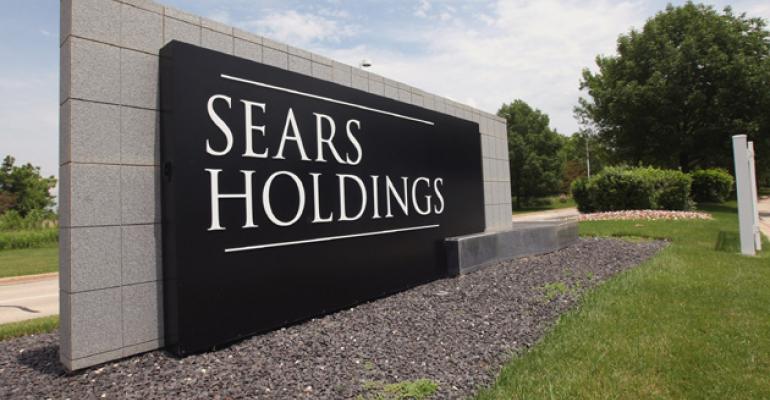(Bloomberg)—Creditors are sifting through the smoking ruins of Sears Holdings Corp. to question whether any of Eddie Lampert’s deals involving the bankrupt retailer were improper.
Lampert, 56, a billionaire who controls nearly half of Sears stock, has had interests on both sides of significant transactions the past few years. He remains the retailer’s chairman after resigning Monday as chief executive officer, and he’s also chairman of the retailer’s spinoff, Seritage Growth Properties, which collects rent from 230 Sears and Kmart stores. Lampert and his hedge fund, ESL Investments Inc., have loaned Sears $2.66 billion in a dozen different ways.
At issue is the possible stripping of assets from a failing business. Creditors will want to recover as much of their investment as they can in Chapter 11, and they’ll form a committee to take any findings to a judge, who’ll decide if Sears was taken advantage of, or they can use what they learn to bargain with Lampert. They can argue that money transferred out of their reach in the years leading to a bankruptcy can be clawed back.
“Things may get contentious early on,” said Jeffrey Pierce, managing partner at Snow Park Capital Partners, a hedge fund that has had a short position on Sears stock. “There are many large payments being made out of Sears to entities Lampert has material economic interests in, such as Seritage.”
‘Inherent Conflict’
ESL floated a plan last month to restructure the 125-year-old retailer and keep it out of bankruptcy, where it falls under a judge’s scrutiny. The plan was rejected by other creditors.
Sears filed for Chapter 11 on Monday with about $11 billion in liabilities and $7 billion in assets. It said it plans to shutter 142 stores.
ESL said it “believes that supervision by a judge will enable creditors to address any issue among them according to a clear set of rules and permit the sale of certain assets through a court-approved auction process to maximize value.”
First Hearing
When it comes to Sears, Lampert and his hedge fund are everywhere. As a shareholder, chairman and CEO, he’s steered the company, influencing the timing of borrowing. As a major secured lender, he’s controlled the terms of those financing arrangements, and benefited from interest payments. At Seritage, he’s profited from Sears’s rental payments on its store leases.
In the retailer’s first bankruptcy hearing Monday, Fairholme Capital Management, a fund with a $300 million unsecured claim, suggested that Sears has been winding down the last few years outside of court supervision.
Sears’s 6.625 percent October 2018 bond, which it defaulted on when it filed, is trading around 22.5 cents on the dollar, according to Trace data compiled by Bloomberg.
Under Delaware law, where some Sears divisions are based, creditors have four years to make clawback claims. Claimants need to prove that the company was already insolvent and that creditors didn’t get fair value for the transfers.
“I’m tired of the inherent conflict,” said Aldon Taylor, CEO of Harrison, Arkansas-based Deep Roots Capital, which recently sold its $10 million Seritage stake. Lampert “really needed to close Sears stores, but he couldn’t because he needed to keep payments to Seritage alive.”
‘Very Public’
Despite any anger, bondholders will have a tough time proving fraud, said Kenneth Rosen, chairman of the bankruptcy and creditors’ rights practice at Lowenstein Sandler in New York.
“The sales of assets to ESL and the financings by ESL were very public,” Rosen said. “The board of directors likely vetted those transactions thoroughly, since they should have been concerned about their individual liability.”
Lampert’s eternal optimism about the future of Sears -- what Rosen calls “debtor syndrome” -- and his subsequent attempts to keep the retail chain alive, by any means necessary, aren’t illegal, Rosen said. “Especially when thousands of jobs are at stake, when 700 landlords don’t want to take back vacant space in a tough retail climate and vendors may themselves go underwater if they lose Sears’s business.” About 68,000 jobs are on the line.
Lampert’s Wishes
The Sears board has already been sued over allegedly shortchanging investors in the 2015 deal to create Seritage. Early last year, Lampert and the other directors settled four lawsuits with a $40 million payment.
Seritage, a real estate investment trust, bought $2.7 billion worth of Sears and Kmart stores. Investors alleged that directors bowed to the wishes of Lampert in approving the transaction that effectively gave him control of both the chain and REIT. Seritage leases the stores back to Sears.
Sears said it wants to remain in business. It’s trying to line up $300 million of financing and sell 400 stores to make that possible. The lender, and store buyer, it’s in talks with? Eddie Lampert, of course.
--With assistance from Allison McNeely, Eliza Ronalds-Hannon and Katherine Burton.To contact the reporters on this story: Tiffany Kary in New York at [email protected]; Lauren Coleman-Lochner in New York at [email protected] To contact the editors responsible for this story: Nikolaj Gammeltoft at [email protected] ;Anne Riley Moffat at [email protected] Bob Ivry
COPYRIGHT
© 2018 Bloomberg L.P

